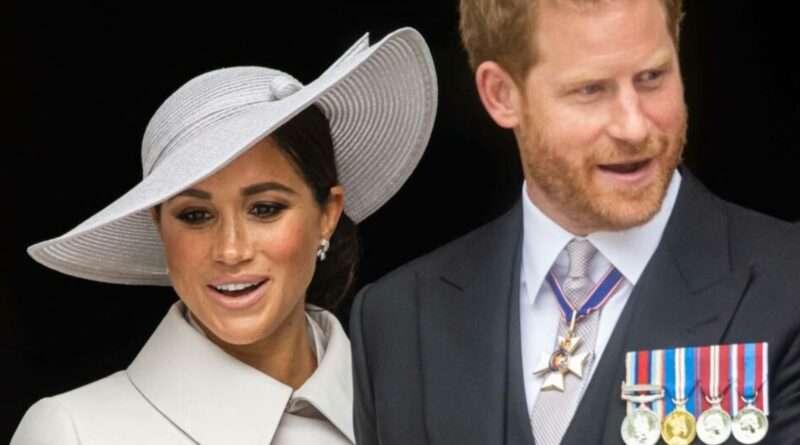Harry was conscious that calling his daughter Lilibet was disrespectful to the Queen and would “cause trouble,” claims the author
Prince Harry and Meghan Markle’s first child, Archie, was born in the year 2019. Two years later, the couple’s decision to name their daughter generated quite a fuss.
Others said that since Prince Harry and Meghan had already left the Royal Family, it wasn’t the right thing for them to do to name the infant Lilibet after the Queen.

Due to her US birth, Lilibet only had one contact with the Queen.
All accounts indicate the encounter didn’t live up to Harry and Meghan’s hopes because Elizabeth wouldn’t pose for a photo with her great-granddaughter.
Now, a royal author claims that Harry knew the Duke of Sussex would encounter criticism for giving his daughter the name Lilibet.
Since the Duke’s book Spare was published in early January, Harry and Meghan have maintained a quiet profile. The pair has only once been seen out and about since the book’s release; it is most probable that they are spending time at home with their two kids, Archie and Lilibet.
Harry, however, didn’t hold back while criticizing the Royal Family in his memoir. King Charles, Queen Consort Camilla, Prince William, and Kate Middleton all came under fire after Prince Harry revealed many new admissions about his life as a member of the royal family.
He also stated his displeasure at not being invited to William and Kate’s home when Prince George was still a toddler to play with him and his concern that Princess Charlotte and Prince Louis, their younger children, might develop into “Spares” like him.
The firstborn of the couple’s union was Archie Harrison Mountbatten-Windsor. It’s interesting that the name Archie has no connection to the British Royal Family. Its meanings are “genuine” or “brave,” and in the UK, it is a pretty well-liked name.

Yet the story is entirely different for Harry and Meghan’s daughter. A source at the time informed Page Six that it was “extremely unlikely” that the couple would name their baby Diana.
Harry and Meghan reportedly feared that giving their kid the name Diana would “place too much weight on the child” and make everything in her life more difficult.
Despite the fact that the term “Lilibet” refers to Queen Elizabeth, who went by that name when she was a little child. In fact, the then-Princess Elizabeth herself chose it at first because she found her own name difficult to pronounce.

Netflix
The Queen’s grandfather, King George V, used to call her “Lilibet.” The Guardian claims that the name has remained ever since. Her late husband, Prince Philip, and other close family members referred to her as Lilibet.
In a letter to his mother-in-law after their wedding, Philip wrote, “Lilibet is the one ‘object’ in the universe which is absolutely real to me.”
Despite having the name Lilibet, the daughter of Harry and Meghan will be called “Lili.”

The decision to name their child after the Queen and Princess Diana (Lilibet receives her grandmother’s name as her middle name) looks like a lovely gesture. The names, however, have deeper meanings than they initially seem to, if some tales are to be believed.

With the birth of their beloved daughter, Harry and Meghan received harsh criticism for the names they chose for her. In a Daily Mail column, royal expert Richard Kay hypothesized that Meghan and Harry may have gone too far by naming their kid Lilibet.
Even though they plan to call their baby “Lili,” Kay, who was quoted by Express, said that naming the infant Lilibet carries some danger.
Would it be viewed as arrogant for a royal kid who will grow up on the other side of the earth speaking with an American accent? Inquired the ninth in line to the throne.

And what could Prince Charles think if his fifth grandson used a name that is so strongly linked to the family but which he has never personally used? One would wonder if Harry would have made the same choice if his grandfather Prince Philip, the only member of his immediate family permitted to address the Queen as “Lilibet,” had still been alive.
SOURCE:

Facebook Comments